FOR anyone who likes flowers, art and photography, there is the perfect exhibition at the Saatchi Gallery in King’s Road, Chelsea, until July 9, which isn’t very long now, so it’s worth catching while you can.
Last month, the Royal Horticultural Society partnered with Eastern Eye to produce the Garden of Unity at the Chelsea Flower Show.
And now, for the third year in succession, the Saatchi Gallery, one of the most spacious in London, is exhibiting the RHS Botanical Art & Photography Show. Two galleries are given over to paintings of plants and flowers and one to photography.
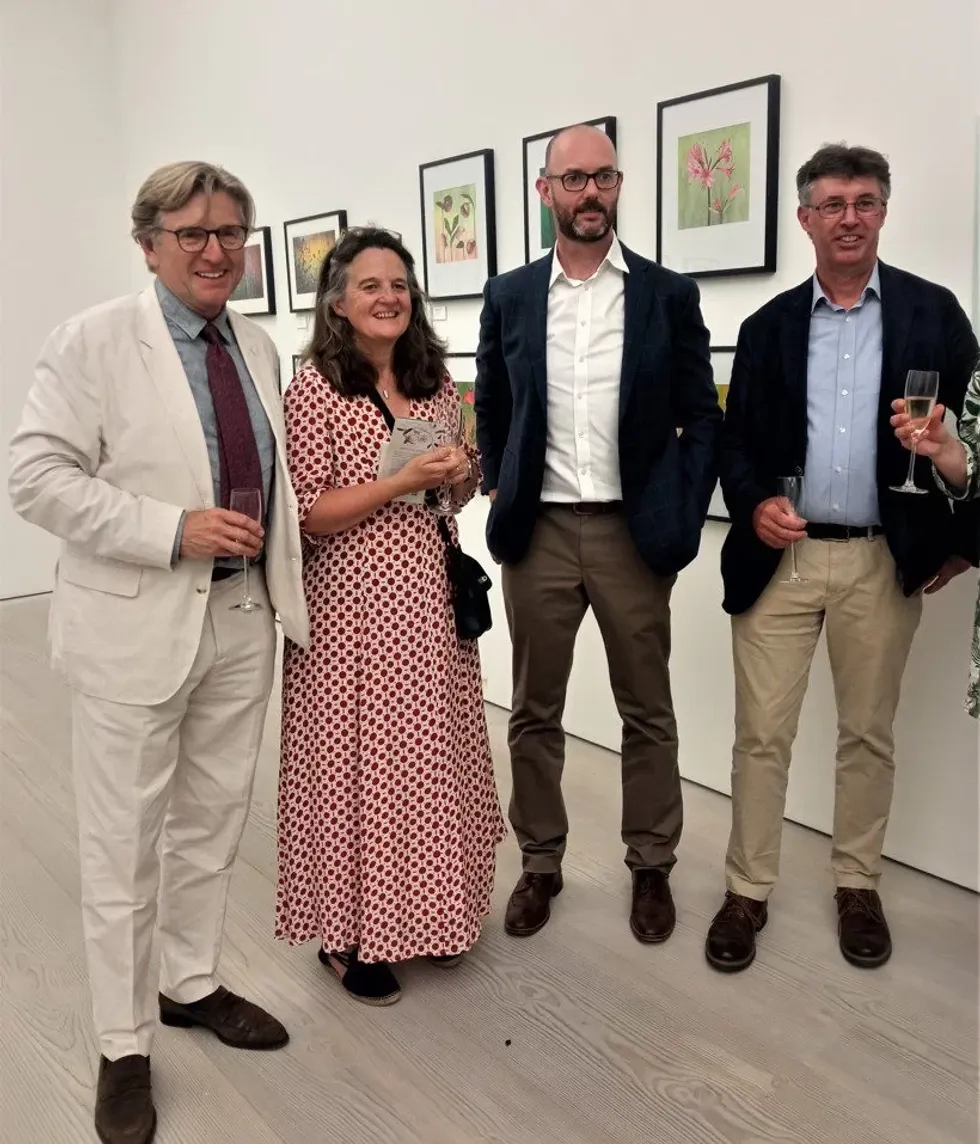
Prof Alistair Griffiths, who is based at RHS Wisley in Surrey as the organisation’s director of science & collections, said what I was thinking – sometimes the photographs are so delicate, you think you are looking at a painting.
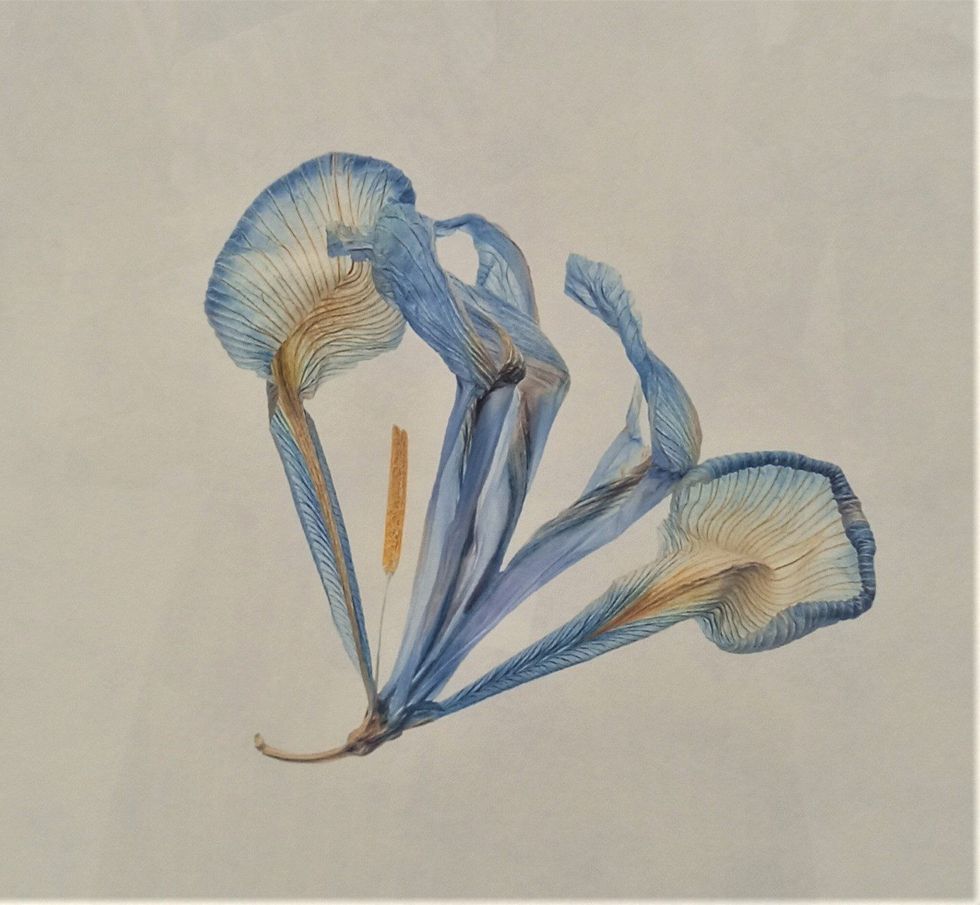
To illustrate his point, he drew my attention to a photograph of an Iris Versicolor by Irene Stuples.
The opposite is also true. Sometimes, the paintings are so meticulous they resemble photographs.
I did my usual thing. I did not want to be swayed by the works that had won medals, but just went around looking at the entries I could live with at home.
I picked five. They included, for example, evocative black and white photographs of Hornbeam Trees by Marion Sidebottom. She did win a gold medal for it, incidentally.
The photographer, who lives and works in Essex, says: “The magnificent trees in this series were found in forests in my home county of Essex. Hornbeams can live up to 300 years. With their fascinating shapes and forms, these incredible trees have adapted and survived over time, to their changing environment. Their lives can be extended further by being coppiced or pollarded. This portfolio demonstrates the ability of native hornbeam trees to regenerate, create adaptive growth and transform according to the changing conditions where they grow.”
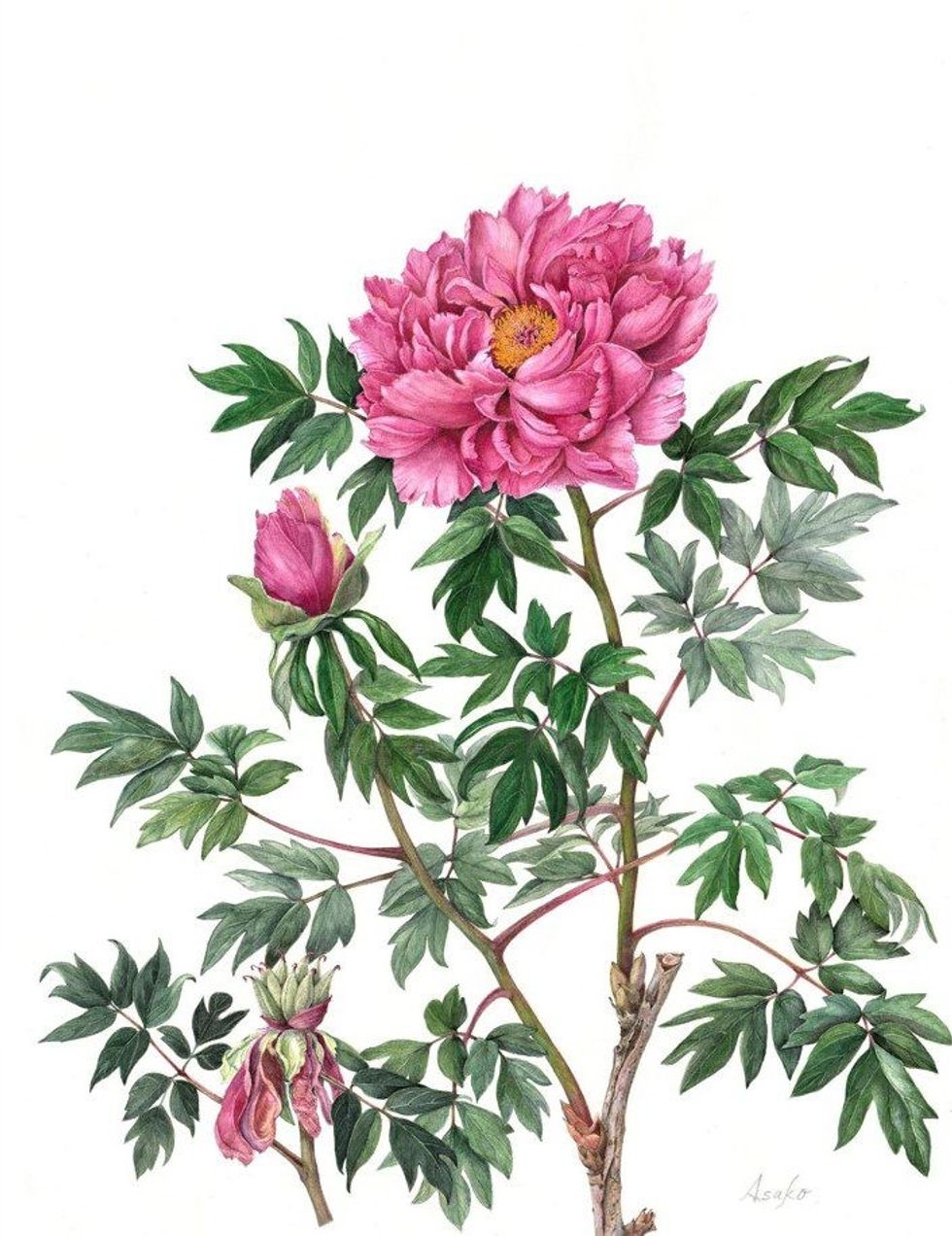
I also picked Asako Kuwajima’s paining of a Paeonia suffruticosa ‘Shimano Fuji’. She lives in Japan and received a silver gilt medal. The peonies I have at home are now heavy with bloom, so I could identify with her comment: “I love peonies, I have 16 pots of them in my garden. They are the tree peonies with leaves that fall in winter. Their flowers bloom after the cherry blossoms are over. They are big and so beautiful.”
It really is wonderful to be in an exhibition where everything is so beautiful.
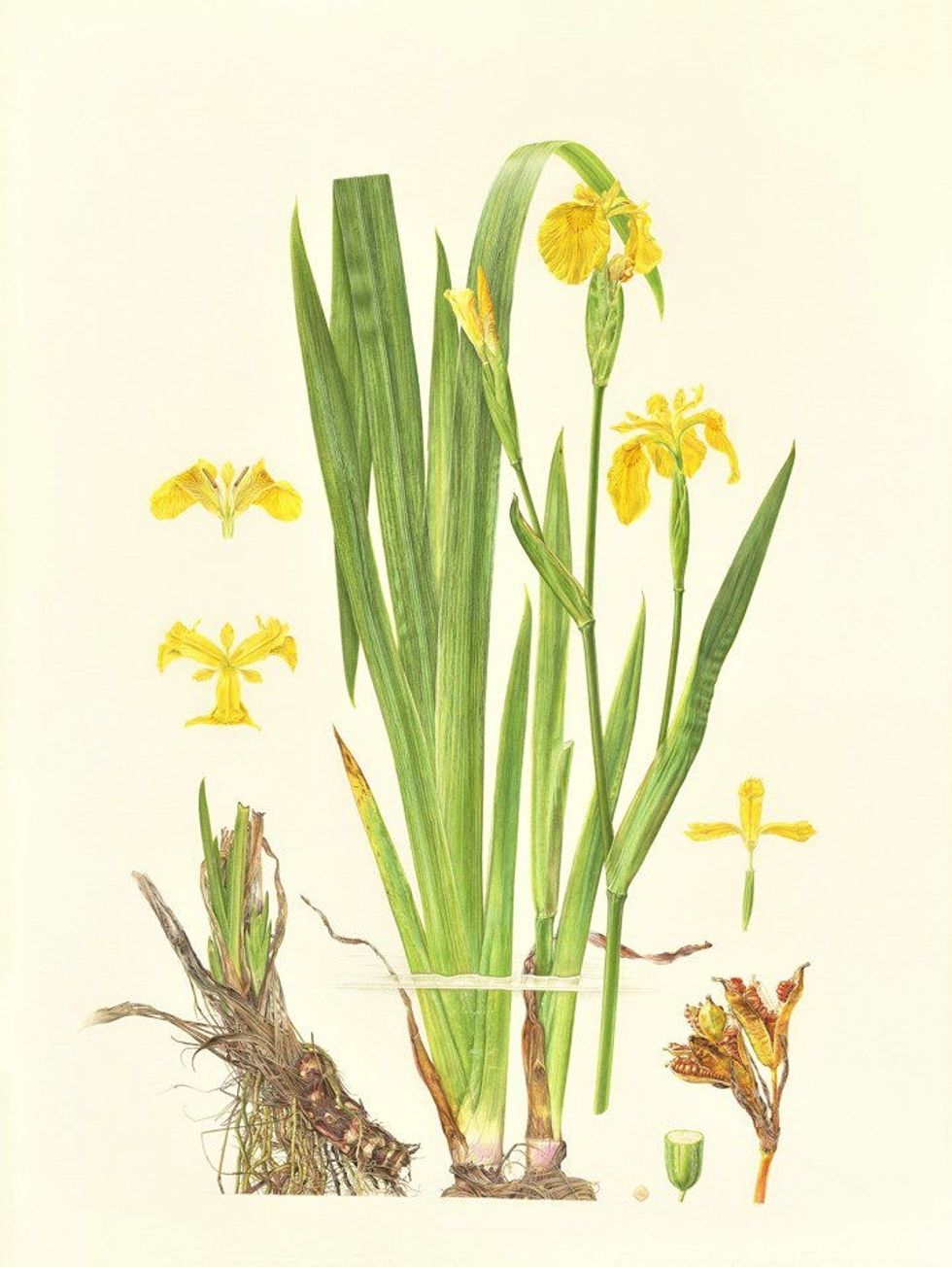
I also picked Iris pseudacorus by first time entrant Nina Mayes, who lives in Hertfordshire and says: “Macrophytes are freshwater plants. The emergent zone is where macrophytes ‘emerge’ above the water, their lower parts submerged and rooted in sediment. I aim to produce educational paintings showing the key features and habitat of the emergent macrophyte species.
“After extensive fieldwork and growing macrophytes in my pond, I made life size drawings, colour matched, preserved and pressed them. This informed the compositions. I then applied watercolour, using lots of mini washes, glazes and dry brush layers all with regular burnishing to keep the paper smooth.”
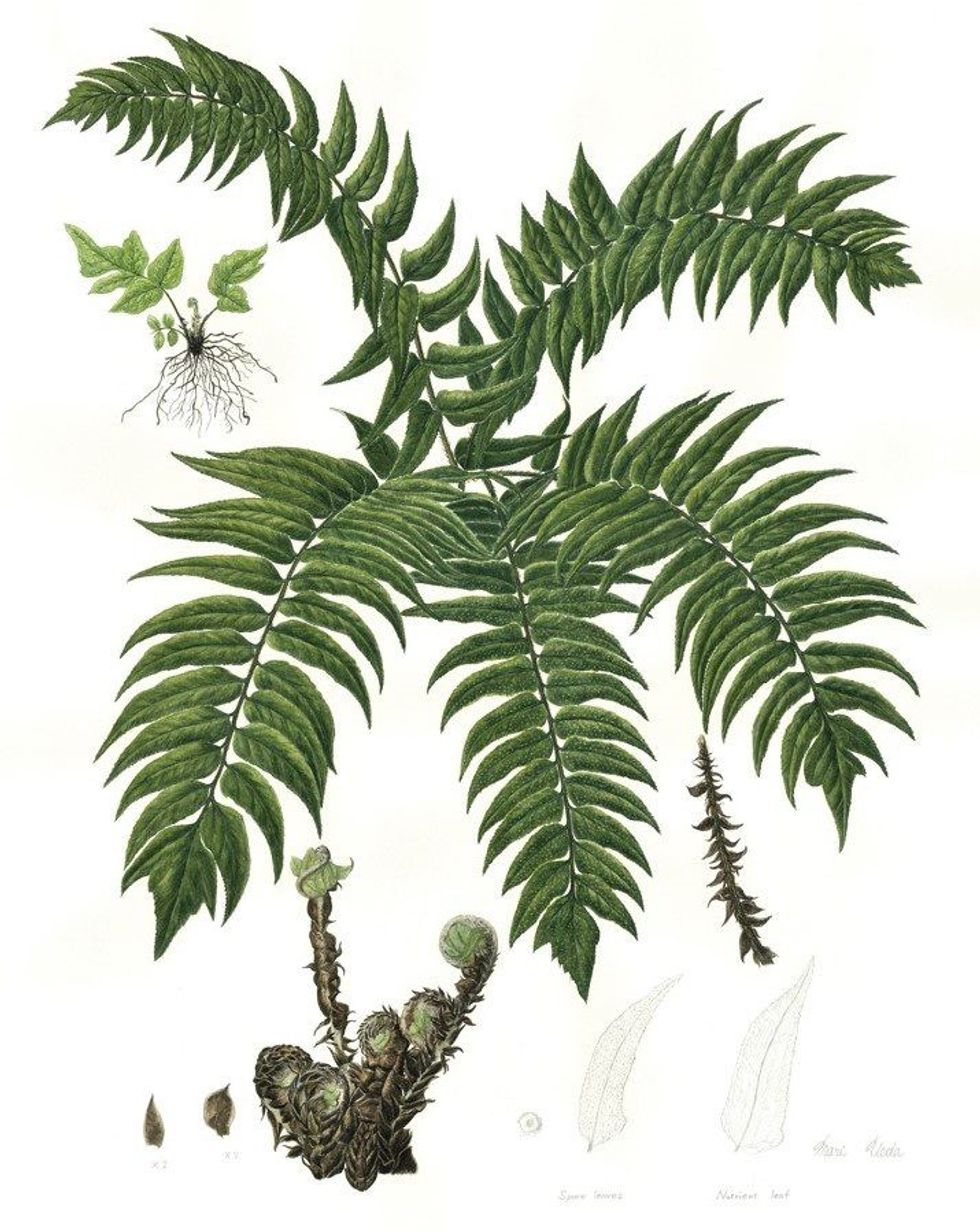
I also selected Cyrtomium fortunei by Mari Ueda, who lives and works in Hyogo, Japan, and won a silver gilt medal.
She tells her story: “I was previously involved in education as an elementary school teacher. I’ve been learning botanical painting since my retirement in 2010. I mainly draw rare plants and fern plants from Harima region, and I’d like to draw as many ferns as possible from now on.
“There are about 623 species of ferns in Japan, and about 112 of them are endemic. In addition, about 110 species are threatened with extinction.
“Fern plants have complex and mysterious shapes, and they have unique structures. Their autumn leaves and sprouts are so beautiful. We use them as a design of ‘kamon-family crest’ and ‘kabuto-helmet’. They are deeply related to Japanese culture,” she said.
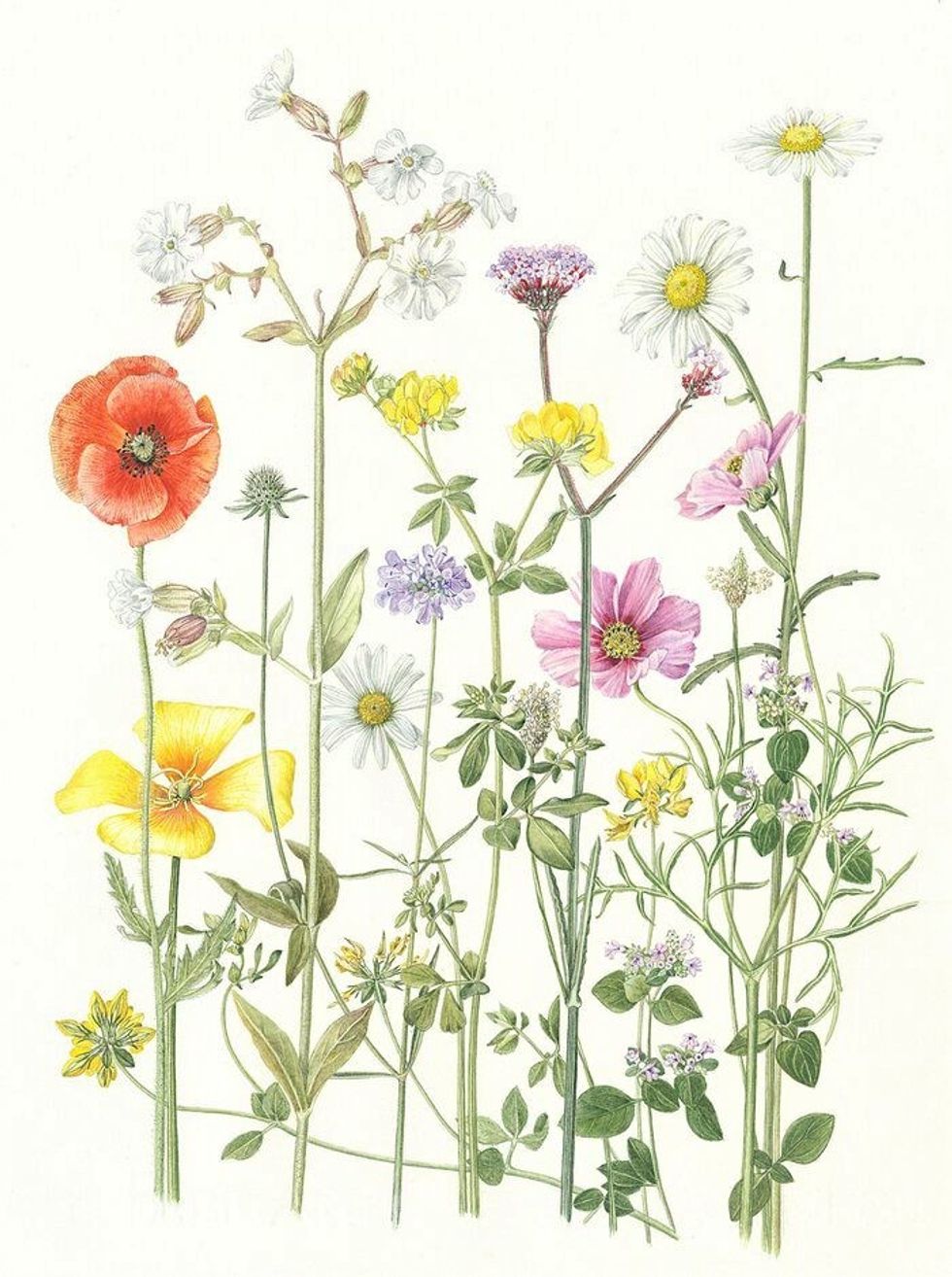
Late July is represented by a painting by Angie Girling, who lives and works in Weston-super-Mare and has won many medals on previous occasions.
She has sought to capture “the transformation of the moat at the Tower of London to a carpet of flowers that took place in June 2022 to celebrate the platinum jubilee of our late Queen Elizabeth II. It was designed by Professor Nigel Dunnett and consisted of 20 million seeds from 29 species and was open to the public from June to September. My paintings show some of the flowers and the progress through the months, giving a feeling of the display which many visitors came to see.”
The RHS says that for more than 100 years it has held shows at which paintings are judged. “The show is a highlight in the calendar of the RHS Lindley Library, complementing its extensive collection of botanical artworks, photographs and illustrations which include more than 30,000 works.”
It is emphasised that an RHS Gold medal “is highly prestigious and botanical artists may strive for years to develop the skills to achieve it. Artists go through a rigorous selection process before being eligible to exhibit. Each exhibit contains at least six artworks, presented on a theme chosen by the artist. The judges consider every aspect of the display, including the artist’s technical skill, the botanical or horticultural content of the pictures, and the scope of the project as a whole. Only an artist who has excelled in all areas gains a gold medal.”
Charlotte Brooks, art curator at the RHS, said: “There is such a wealth of emerging and established talent in the worlds of botanical art and garden photography. It is our pleasure to present new exhibits in these prestigious galleries and help raise the profile of artists and photographers from across the globe.”
Helena Pettit, RHS director of shows and gardens, added: “We are thrilled to be partnering once again with Saatchi Gallery to showcase diverse and wonderful pieces of art and photography that really champion the beauty of gardening.



















 Neetika Knight
www.easterneye.biz
Neetika Knight
www.easterneye.biz

 Raj Ghatak
Raj Ghatak
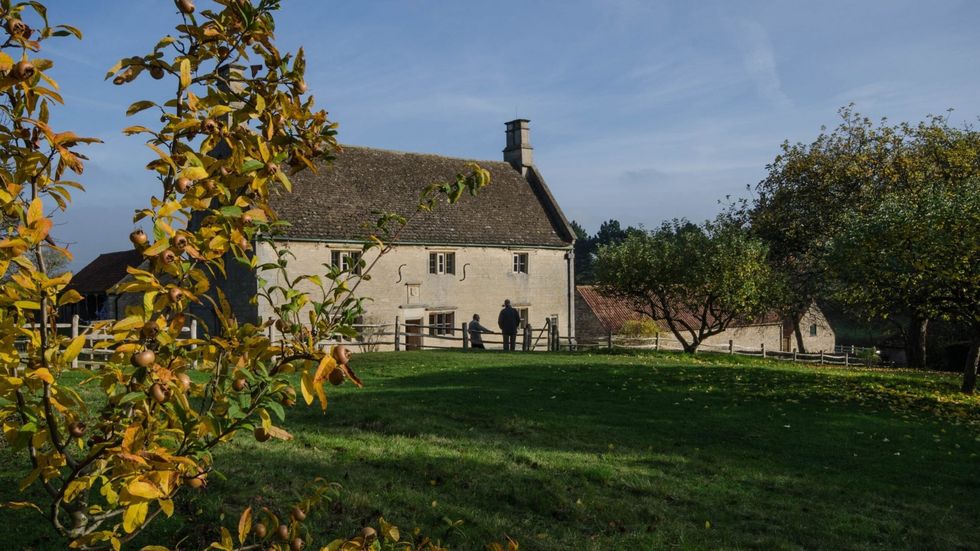 Isaac Newton’s birthplace, WoolsthorpeManor, Lincolnshire
Isaac Newton’s birthplace, WoolsthorpeManor, Lincolnshire